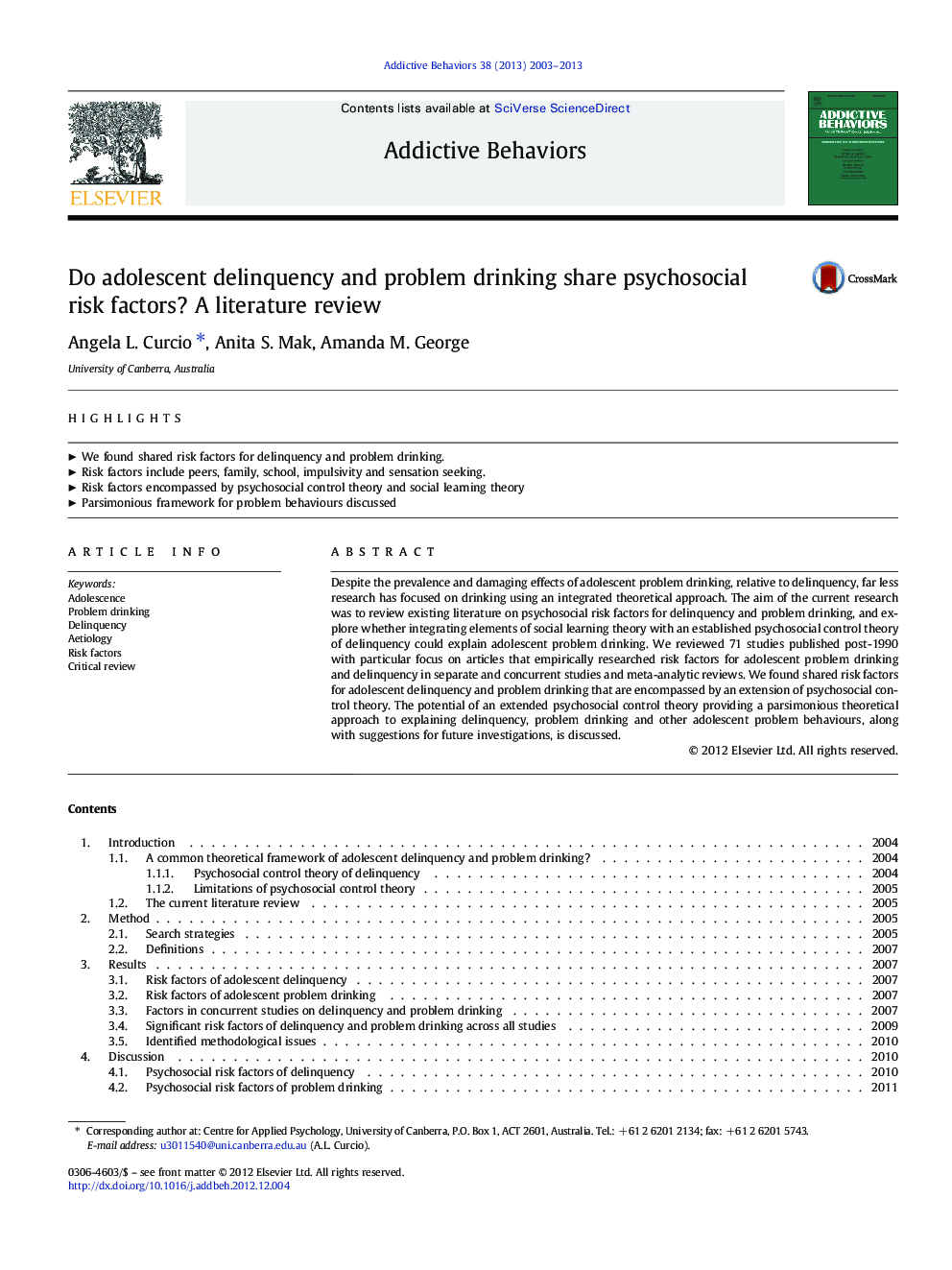| Article ID | Journal | Published Year | Pages | File Type |
|---|---|---|---|---|
| 898881 | Addictive Behaviors | 2013 | 11 Pages |
Despite the prevalence and damaging effects of adolescent problem drinking, relative to delinquency, far less research has focused on drinking using an integrated theoretical approach. The aim of the current research was to review existing literature on psychosocial risk factors for delinquency and problem drinking, and explore whether integrating elements of social learning theory with an established psychosocial control theory of delinquency could explain adolescent problem drinking. We reviewed 71 studies published post-1990 with particular focus on articles that empirically researched risk factors for adolescent problem drinking and delinquency in separate and concurrent studies and meta-analytic reviews. We found shared risk factors for adolescent delinquency and problem drinking that are encompassed by an extension of psychosocial control theory. The potential of an extended psychosocial control theory providing a parsimonious theoretical approach to explaining delinquency, problem drinking and other adolescent problem behaviours, along with suggestions for future investigations, is discussed.
► We found shared risk factors for delinquency and problem drinking. ► Risk factors include peers, family, school, impulsivity and sensation seeking. ► Risk factors encompassed by psychosocial control theory and social learning theory ► Parsimonious framework for problem behaviours discussed
